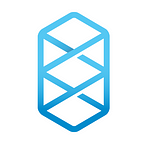Crowd-sourcing variant interpretations to improve patient outcomes
We fundamentally believe that democratization of genomics information through sharing will massively accelerate discoveries that will lead to better treatments and outcomes for patients affected by genetic diseases. We can avoid long diagnostic odyssies by connecting patients’ data into networks that leverage — in realtime — large and exponentially growing volumes of information. This is the inspiration behind our work on the Beacon Project for the Global Alliance for Genomics & Health, where we are defining industry standards for sharing genomic variants.
Beyond sharing variants themselves, though, it is important to share their classifications — i.e. whether a variant causes disease — because while there are standards and guidelines for interpretation of genetic variants, it is common for different laboratories to classify them differently. One laboratory may consider a variant to be pathogenic while another may consider it benign, leading to discrepent diagnoses and treatment options between patients studied at different clinics.
The purpose of the Canadian Open Genetics Repository, lead by Dr. Jordan Lerner-Ellis, Director of the Advanced Molecular Diagnostics Laboratory at Mount Sinai Hospital, and by Dr. Matthew Lebo, Associate Laboratory Director for Laboratory for Molecular Medicine at Partners Healthcare, was to develop a national program for Canadian genetic diagnostic laboratories to crowd-source variant interpretations and resolve discordant classifications for variants.
The study included over 20 laboratories who classified over 5,000 variant observations in these genes. Using a five-tier classification model, 38.9% of variants were discordant between laboratories; with a three-tier model, 26.7% were discordant. After crowd-sourcing variant classifications — and supporting evidence — discordance decreased to 30.7% under the five-tier model and 14.2% under the three-tier model. This study demonstrates the power of a crowd-sourcing platform to increase the level of consensus in variant classifications.
Sharing of variant knowledge by clinical diagnostic laboratories will allow clinicians and patients to make more informed decisions and lead to better patient outcomes.
The DNAstack platform is being used to share variants and their classifications as a public resource on opengenetics.ca and as a Beacon on the Beacon Network. The work was recently published in the pages of Genetics in Medicine and the full text is available for download here.
